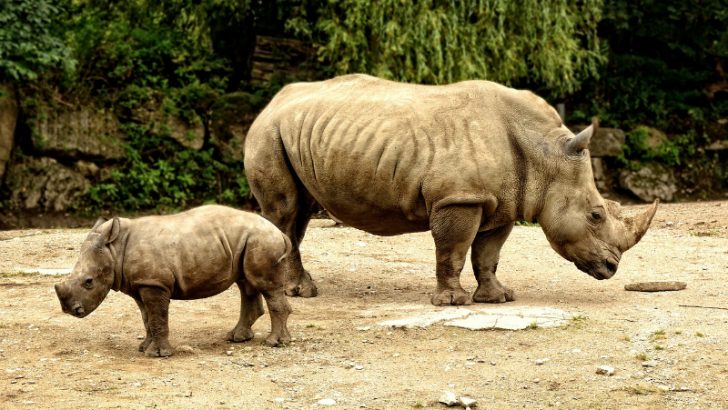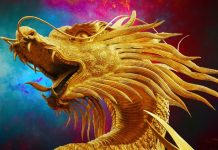

The recent Oracle Modern Business Experience event saw attendees challenged by Matthew Guest, Founder of Deloitte Digital Strategy in the first keynote. He delivered a presentation that revealed some interesting details about why organisations fail. He then related a business model that organisations should consider.
Are Unicorns always disruptive
Guest is fascinated by the success of Unicorns and whether they really disrupt dinosaur businesses. He recently completed some research on the topic with Julian Birkinshaw, Professor at London business school. They choose to look at banks, traditionally seen as dinosaur business that haven’t changed. After an extensive study they identified dinosaurs, challengers and what they called neos, or startups.
The results identified that while startups may have lower overheads than both challengers and dinosaurs they didn’t have the scale of digital outputs that the dinosaurs managed. The conclusion was that unicorns may not always disrupt business. In certain industries it certainly hasn’t happened yet. The question this raises is: why do businesses fail?
Why businesses fail
Guest revealed that businesses fail most commonly at two points in their history. He used Paul Ormrod’s modelling of the impact of shocks on systems to analyse the failure of large enterprises over 150 years. These were enterprises founded nearly 200 years ago and who, at their peak, were some of the largest enterprises around. He found that the first major failure point was in the first five years with 35% of these young large enterprises failing. These are unicorns rather than dinosaurs that grow explosively and fail, often spectacularly. The second was around the 80-110 year market.
At first glance this seems odd, one has a sharp descending curve followed by a bell curve with the twin peaks around the 100 year mark. Guest posed the question about why enterprises should fail more often in both early life and after so long. He found that there was a commonality between the two. In the early days the startups do not evolve their business model often focusing on a single product. When that product goes end of life, the business fails.
In the longer term a new generation of managers continue to drive the successful company in the same way they always have. The internal organisation does not evolve, nor does it innovate in multiple dimensions. Eventually components of the business fail, leading to the fall from grace of the well established company. Sometimes this might be due to disruption, but not always according to Guest.
Guest offers a model for businesses not just a theory
It should be said that these are not the only reasons why businesses fail. Guest continued to understand what actions companies should consider to avoids such failures. He identified that it was not disruption itself that caused them to fail but rather, what companies did or didn’t do.
There are many theories around the crisis of growth including Greiners evolution and revolution and Ichak Adizes corporate lifecycles. Guest as a practitioner has created a model that businesses can action rather than just be aware of.
Seven Engines make light work
Guest proposes that organisations should consider a seven engine model to ensure that transformation and change is retained in organisations. Each of these engines can be replicated several times in different functions, but each one has its purpose. Guest also pointed out that the engines do not need to physically exist within the organisations itself, they could be outsourced.
Commissioning engine. Guest sees this like a quarterback. It finds new engines, devises strategies and triggers migration between the engines.
Functional engines
There are five functional engines. Each with a different purpose, where change projects will sit before being moved between them. They are sometimes pushed by the commissioning engine.
Invention engine: These are the people or teams who come up with new ideas. It is R&D in it purest sense. Not all of them will work, not all of them should exist.
Innovation engine: These take the inventions and identify whether they actually serve a purpose. Deliver the benefit to the customer or the organisation concerned.
Commercialisation engine: Ideas might work, but they may not be commercially viable. This could be due to the cost to make or cost of sale. The team answers three fundamental questions according to Guest. Does the customer want it? Can it be done? Can it make money?
Scaling engine. Just because a product can be made and is profitable does not make it scalable. This is where many start-ups fail and is a challenge as they often need the infrastructure and resources to support that scaling.
Optimisation engine: In the early stages of a products life, profits are normally good. Over time these are eroded and the business that constantly re-evaluate how it makes, delivers, and finds new value creation for the product will find the products that last.
Final stage engine
Decommissioning engine: While Guest named this decommissioning it is also about renewal. It is about identifying new business ideas from old products. It is also about ending the life of products that are no longer producing. One company that does this effectively is Unilever. They constantly re-evaluate their brands and sell off those that are no longer core while they are still profitable.
Strengths and weakness of Unicorns and Dinosaurs
As Guest pointed out, start-ups have strengths in the invention engine and innovation engine. Those that fail often do because they cannot commercialise their offering or perhaps scale it. On the other hand dinosaurs can have issues with both invention and innovation, relying on tried and trusted products and methods.
Conclusion
The modern business needs a hybrid attitude, including elements of dinosaurs and unicorns. As a visual image Guest suggested a rhino. The key is that both dinosaurs and unicorns need to learn from each other. As Guest pointed out, dinosaurs were once unicorns, and unicorns want to become dinosaurs often despite their rhetoric. They should both aspire to be rhinos. Ultimately the successful organisation not only needs to be a hybrid, they need to continue to do so.
At some point in the future Guest intends to take the time to write a book explaining his theory in more detail. It is already on our wish list.


























